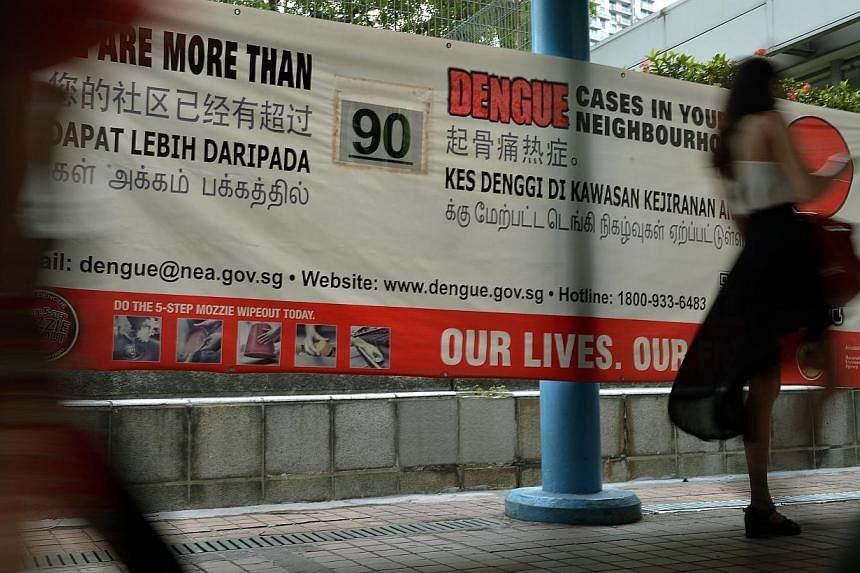SINGAPORE - Researchers from the Singapore General Hospital and Duke-NUS Graduate Medical School Singapore have found that Celgosivir, a potential dengue treatment, is generally safe for patients.
But further tests need to be done to determine how often it should be taken.
Celgosivir is derived from a naturally occurring compound found in the seeds of the Moreton Bay Chestnut tree.
The team's earlier laboratory tests found it worked against all four types of dengue but studies remain to be done on how much of it and how often it should be given to patients. Though recent human tests prove that it was safe, patients who took 200mg of Celgosivir twice a day for four days, following an initial 400mg dose, did not recover from dengue fever any faster.
The virus was cleared from their blood within three to five days and their fever subsided in the same period. This was similar to a group of patients who were given a placebo.
"Prior research has shown that how often the medicine is taken is an important factor in how effective it is," noted Professor Subhash Vasudevan, who is with the Emerging Infectious Diseases Programme at Duke-NUS.
Establishing that the medicine is safe for humans is a "big step forward" as this means further trials can be done to find out how often the medicine should be taken for it to be effective, he added.
The team will partner Washington-based 60 Degree Pharmaceuticals to test the effects of the medicine when patients take 150mg every six hours.
This will maintain a "higher concentration" of Celgosivir in their systems to fight the dengue virus, Dr Vasudevan said.
Celgosivir might also be tested with other drugs in a "combination drug treatment" to benefit patients.
Since the beginning of this year, more than 11,600 dengue cases have been reported in Singapore, with cases most common around Choa Chu Kang Avenue 2 now.

